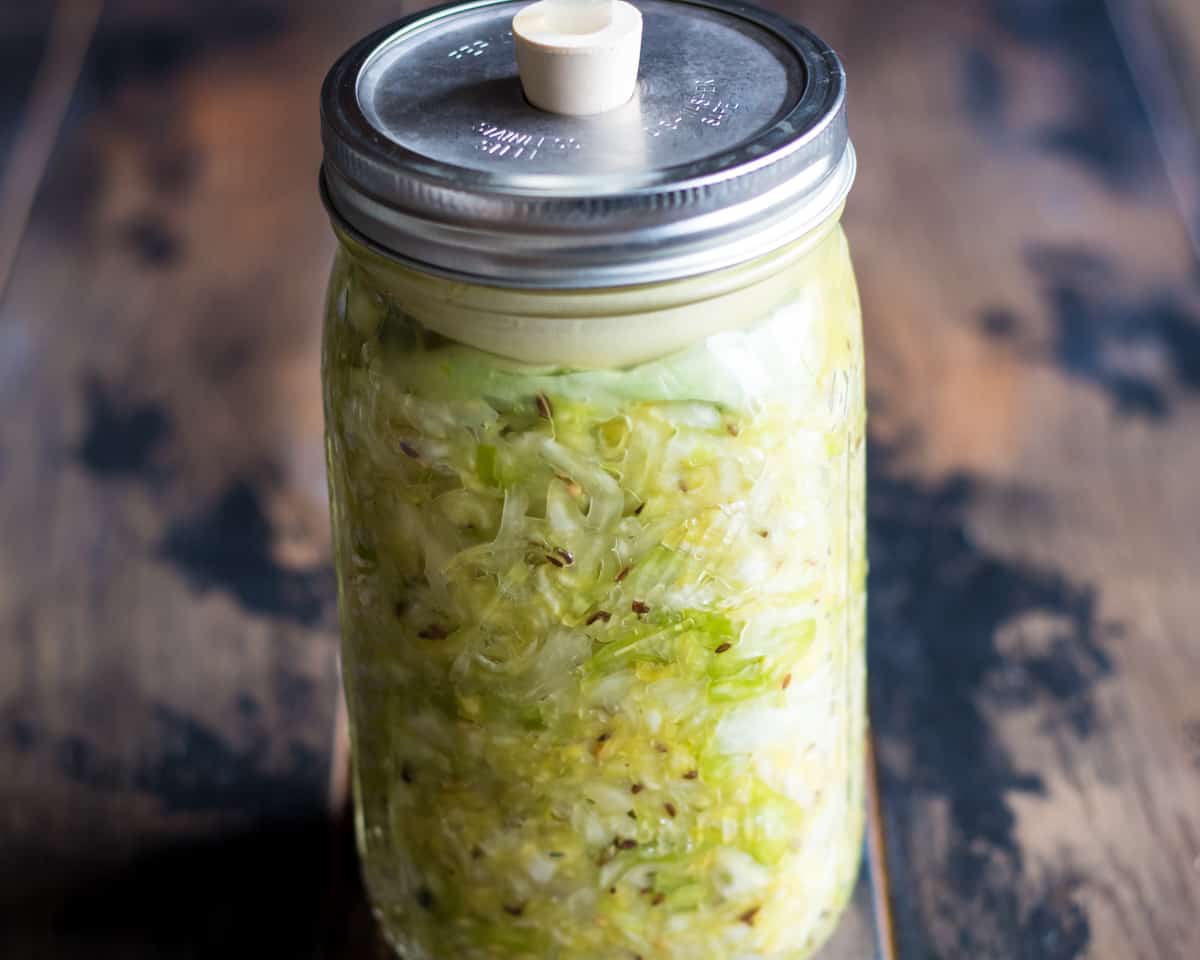Sauerkraut
4.8
(5)
Your folders
Your folders
Prep Time: 30 minutes
Total: 30 minutes
Servings: 16
Cost: $0.62 /serving
Author : Colleen @ Grow Forage Cook Ferment

Ingredients
Export 4 ingredients for grocery delivery
Instructions
Step 1
Peel away the outermost leaf from the cabbage and set it aside to use later.
Step 2
Shred up the rest of the cabbage as finely as possible. A cheese grater works well for this, but you can also slice it thinly with a knife.
Step 3
Put the shredded cabbage into a big wide bowl. Sprinkle the salt all over the cabbage and stir it around to thoroughly coat everything. Then add the spices to the cabbage.
Step 4
Mash the cabbage with a potato masher, wooden spoon, or a fermentation tamper. Really mash it good to bruise the cabbage and break down the cell walls which will release juice.
Step 5
After mashing the cabbage for a while it will be much more juicy and will have lost quite a bit of its volume. When it gets to this stage it’s time to pack the cabbage into a quart jar.
Step 6
Use a wooden spoon to pack it into the jar. Once you pack all of the cabbage into the jar you should have a brine that covers the cabbage.
Step 7
Put the reserved cabbage leaf on top of the shredded cabbage which will help to keep all of the little cabbage pieces under the brine.
Step 8
Add a fermenting weight on top of the cabbage leaf. This will keep everything under the brine during the fermentation process.
Step 9
Cover the jar with a fermenting airlock system, or you can simply cover the whole thing with a cloth or towel. Put the jar in a quiet corner of your kitchen to ferment.
Step 10
Push down on the weight a few times for the first day whenever you think of it, and make sure the brine is completely covering the cabbage. It may not be for the first 24 hours, but if it’s still not after that you need to add more brine.
Step 11
Taste the kraut as you go along, and when it’s to your liking that means it’s done. This could take 2-3 weeks or even longer.
Step 12
Once it has finished fermenting, store the sauerkraut in a covered jar in the refrigerator. It will last for many months or even longer.